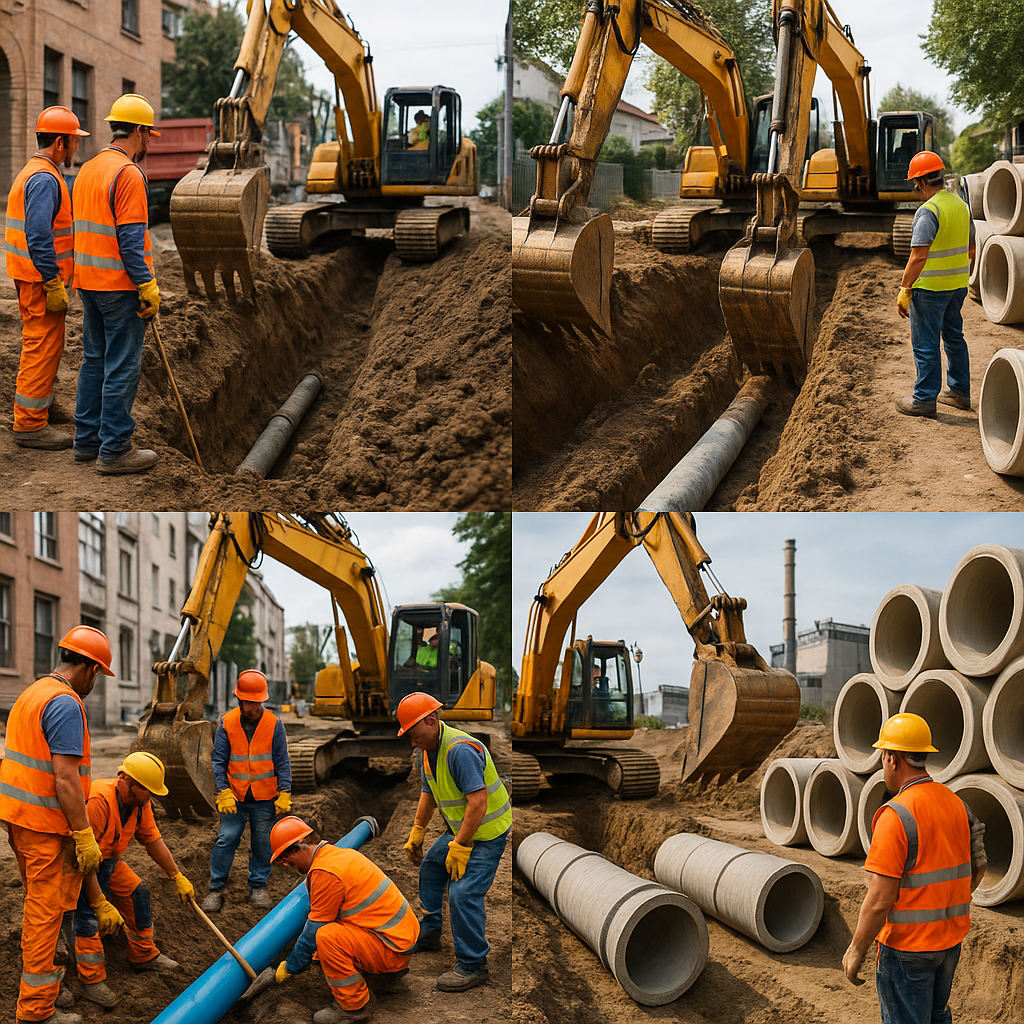Mastering Sewer Inspection: Best Practices for 2024
Explore the latest sewer inspection best practices, leveraging AI and robotics for efficiency and safety in 2024.

Mastering Sewer Inspection: Best Practices for 2024
Sewer inspection is a critical component of urban infrastructure maintenance, ensuring the longevity and efficiency of waste management systems. In 2024, the industry is characterized by rapid technological advancements, stringent regulations, and expanding market opportunities. This article explores the best practices in sewer inspection, focusing on new technologies, industry standards, safety protocols, and actionable advice for professionals.
New Technologies and Equipment
The adoption of advanced technologies in sewer inspection is transforming the industry. Key innovations include:
- Robotic Sewer Inspection Systems: Featuring high-resolution cameras, 3D mapping, and AI-driven analytics, these systems automate defect detection and improve accuracy.
- 4K and Ultra-HD Sewer Cameras: These cameras offer superior image quality, enabling detailed inspections even in low-light conditions.
- Notable Products: The RIDGID SeeSnake microDRAIN APX and CUES OZ4-HD pan-tilt camera exemplify the trend toward high-quality imaging and system robustness.
These technologies reduce human intervention, allowing for safer and more efficient inspections.
Industry Regulations and Standards
Environmental regulations are increasingly stringent, requiring regular inspections and sustainable practices:
- Compliance Requirements: Adopting advanced technologies is essential to meet regulatory standards and avoid infrastructure failures.
- Sustainability Focus: Robotic inspections minimize environmental impact, aligning with global sustainability goals.
Market Trends and Business Opportunities
The sewer inspection market is poised for significant growth:
- Market Projection: Expected to grow from USD 1.2 billion in 2024 to USD 2.5 billion by 2033.
- Emerging Markets: Infrastructure modernization in developing economies offers new opportunities.
- Technological Integration: AI-enabled systems are increasingly favored for their efficiency and cost-effectiveness.
Safety Protocols and Best Practices
Safety remains a top priority in sewer inspection:
- Reduced Human Exposure: AI and robotics limit the need for manual inspections in hazardous environments.
- Predictive Maintenance: Real-time data analysis and automated defect detection minimize unplanned repairs.
Practical Tips
- Invest in Training: Ensure your team is trained on the latest technologies and safety protocols.
- Regular Maintenance Checks: Conduct frequent system checks to ensure equipment is functioning optimally.
Recent Case Studies or Success Stories
Innovative product launches highlight industry advancements:
- Envirosight’s ROVVER X SAT II: This lateral-launch crawler enhances inspection range and accuracy.
- CU Denver’s AI Defect Detection Tool: Demonstrates improved automation and reliability in inspections.
Cost and Pricing Information
Pricing varies significantly based on system sophistication:
- High-End Systems: Feature 4K imaging and AI integration, commanding premium prices.
- Basic Systems: More affordable but gradually being phased out by advanced alternatives.
Investing in cutting-edge technology can lead to long-term savings through predictive maintenance.
Conclusion
Sewer inspection in 2024 requires leveraging advanced technologies, adhering to strict regulations, and prioritizing safety. By adopting these best practices, professionals can ensure efficient, compliant, and safe operations.